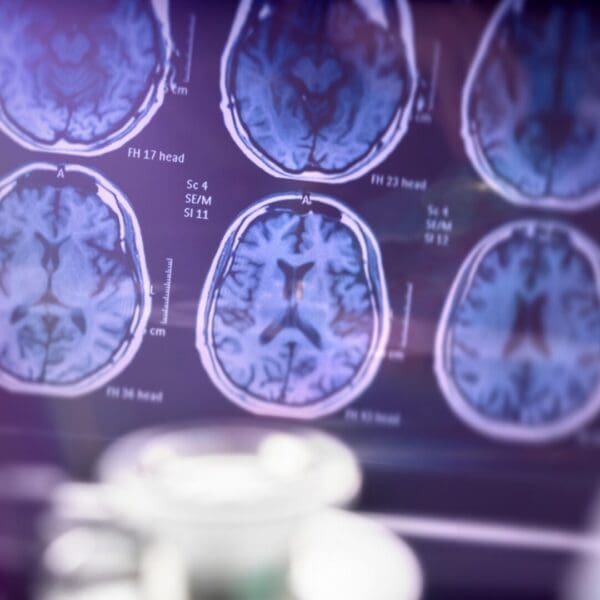For many years, dementia was viewed as an age related condition that followed a steady and unavoidable path. New research now shows that this is not the full story. Large population studies reveal that previous viral infections, including COVID 19, may significantly increase the risk of developing dementia and other neurodegenerative diseases. In some cases, this increased risk can appear years or even decades after the original illness.
The Evidence: More Than Eight Hundred Thousand Medical Records
A landmark study analyzed the health records of over eight hundred thousand individuals in Finland and the United Kingdom. Researchers identified forty five meaningful associations between viral infections and later development of dementia. Twenty two of these were confirmed in both countries, strengthening the findings.
Neurotropic viruses, which are viruses that can enter the nervous system, were found to increase dementia risk dramatically. These include COVID 19, influenza, herpes simplex, and viral encephalitis. In some cases, the risk increased by up to thirty times. Importantly, this elevated risk remains for five to fifteen years after the initial infection.
How Viruses Contribute to Neurodegeneration
Many viruses do not fully disappear from the body after someone recovers. Some can persist quietly in the central nervous system. Their presence can trigger long lasting inflammation, disrupt the immune system, and damage vulnerable brain cells. Over time, this environment can cause abnormal protein buildup, loss of neurons, and eventually the cognitive decline associated with dementia.
Recent data emphasizes the impact of COVID 19 in particular. Older adults who recover from COVID 19 are more likely to experience lingering memory problems and show a higher risk of moderate to severe dementia like impairment compared to those who never had the virus. This may be related to the virus’s effects on areas of the brain responsible for smell, emotion, and memory, as well as the widespread inflammation that follows infection.
The Power of Prevention
The increased risk associated with viral infections does not mean that dementia is inevitable. Research shows that vaccines can lower the likelihood of developing dementia. The shingles vaccine reduces dementia risk by about twenty percent, and the influenza vaccine may reduce it by up to forty percent, which is more protective than many current medications. Vaccination has become even more essential in the post pandemic era, although people with a history of significant viral illness may benefit from additional targeted therapies.
A Comprehensive Multi Modal Approach
For individuals in the early stages of cognitive decline or those at high risk, innovative clinics now use protocols that address all major factors contributing to virus related neurodegeneration. These include:
Blood Purification Therapies
Modern forms of ultraviolet blood irradiation, ozone based therapies such as EBO2, and plasmapheresis help clear viruses, inflammatory proteins, and immune triggering debris from the bloodstream.
Hyperbaric Oxygen Therapy (HBOT)
HBOT increases oxygen delivery under pressure to stimulate brain repair, restore blood flow, activate stem cells and mitochondria, and reduce inflammation. MRI studies show meaningful improvements in memory and cognitive performance after a series of sessions.
Neuroprotective Medications
Medications such as Maraviroc, originally developed for HIV, assist in clearing toxic proteins and restoring neuronal communication. Senolytic compounds, including Dasatinib and Quercetin, remove aged dysfunctional cells that drive inflammation and accelerate cognitive decline.
Targeted IV Nutritional Therapies
Methylene Blue supports mitochondrial health. Curcumin and EGCG reduce inflammation and oxidative stress. Phosphatidylcholine helps rebuild cell membranes involved in brain signaling.
Heat Therapy
Regular infrared sauna use increases heat shock proteins that protect cells and improve resilience to ongoing stress.
Who Should Consider a Protocol Like This
A multi modal program may be appropriate for:
• Individuals with early dementia or mild cognitive impairment
• Anyone with a history of significant viral infections, such as COVID 19, encephalitis, shingles, Epstein Barr virus, severe influenza, or pneumonia
• People with high inflammatory markers, strong family history, or early signs of abnormal protein buildup
• Patients who are willing and able to engage in a dedicated treatment plan over several months under medical guidance
Essential Non Pharmacological Supports
Alongside advanced medical therapies, foundational lifestyle strategies continue to play a major role in brain health. These include:
• Regular aerobic exercise
• A Mediterranean style or plant rich diet
• Management of hypertension, diabetes, and lipid disorders
• Evaluation and treatment of sleep apnea and hearing loss
• Continued social and cognitive engagement
What This Means for Patients
If you or someone close to you is experiencing early cognitive changes or has a history of significant viral infection, it is important to seek care from a team familiar with complex, mechanistic approaches to dementia. For the first time, we have growing evidence that dementia is not only a condition to be managed but one whose underlying drivers can be addressed directly. Early intervention offers the best chance to slow or possibly reverse the processes that lead to cognitive decline.
– Dr. Purita















